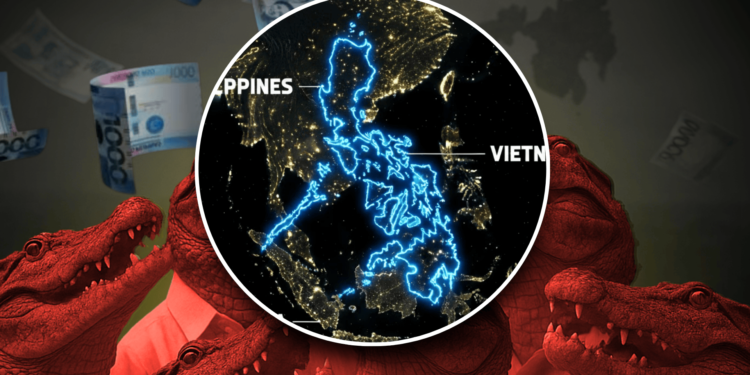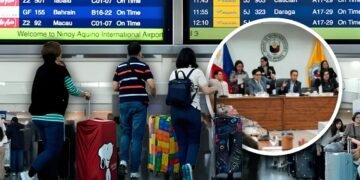We’ve been told to accept our place — that we’re a “poor country” destined to scrape by. But that lie has been passed down like family debt.
The Philippines has always been rich: an archipelago bursting with natural resources, young labor, and potential. What it lacks is accountability.
Poverty here isn’t proof of scarcity; it’s evidence of theft.
A rich nation is sold as poor
On paper, the Philippines ranks among the world’s largest economies and remains a thriving emerging market. The country’s GDP growth rose 5.5% in 2025 and 5.2% in 2024, according to the Philippine Statistics Authority. Yet wages lag and inequality deepens. Growth reports glow while wallets stay empty.
The Department of Finance claims “steady expansion,” and the 2025 national budget — ₱6.3 trillion — is called a “tool for progress.” But in reality, much of it disappears into red tape, debt, or influence. The Senate’s 2024 budget report revealed funds without measurable outcomes. Corruption doesn’t stall growth; it redirects it.
The illusion of progress
Every year brings the same optimism. The World Bank projects that the Philippines could become an upper-middle-income economy within the decade. The IMF lists the country among Asia’s top performers. Yet progress remains uneven, with prosperity confined to boardrooms and city centers.
A report from the Asian Development Bank confirms the pattern: growth that “did not translate into poverty reduction.” It blames inequality, weak institutions, and low-quality jobs. Economist Michael Alba called it a low-growth trap, while analysts described it as a lower-middle-income country trap. The economy moves — just not for everyone.
Budgets rise, lives don’t
The government celebrates new spending like progress, but the data tells another story. The People’s Budget 2025 and previous 2024 and 2023 allocations all promised “inclusive growth.” The Bureau of the Treasury’s fiscal report showed where much of it went — to servicing debt, not citizens. The DBM comparison with ASEAN-5 quietly admits the Philippines still spends less on infrastructure than its neighbors.
Even as the DOF–World Bank partnership trumpets “inclusive growth,” millions remain excluded. The Trading Economics data and IMF nominal GDP ranking show a booming economy, but the wealth never reaches the working class. Rural poverty persists. Urban poverty grows quieter — but hungrier.
A rich nation robbed, not ruined
The Philippines isn’t poor; it’s plundered. The ADB’s poverty analysis points to corruption and failed governance as the roots of inequality. The country’s own national accounts prove money exists — it just circulates where power lives.
Every budget, every reform, every projection ends the same way: optimism at the top, exhaustion at the bottom. The economy grows, but the gap grows faster. And until accountability catches up, every glowing report will hide the same truth.
We were never poor. We were just robbed — legally, consistently, and in broad daylight.












